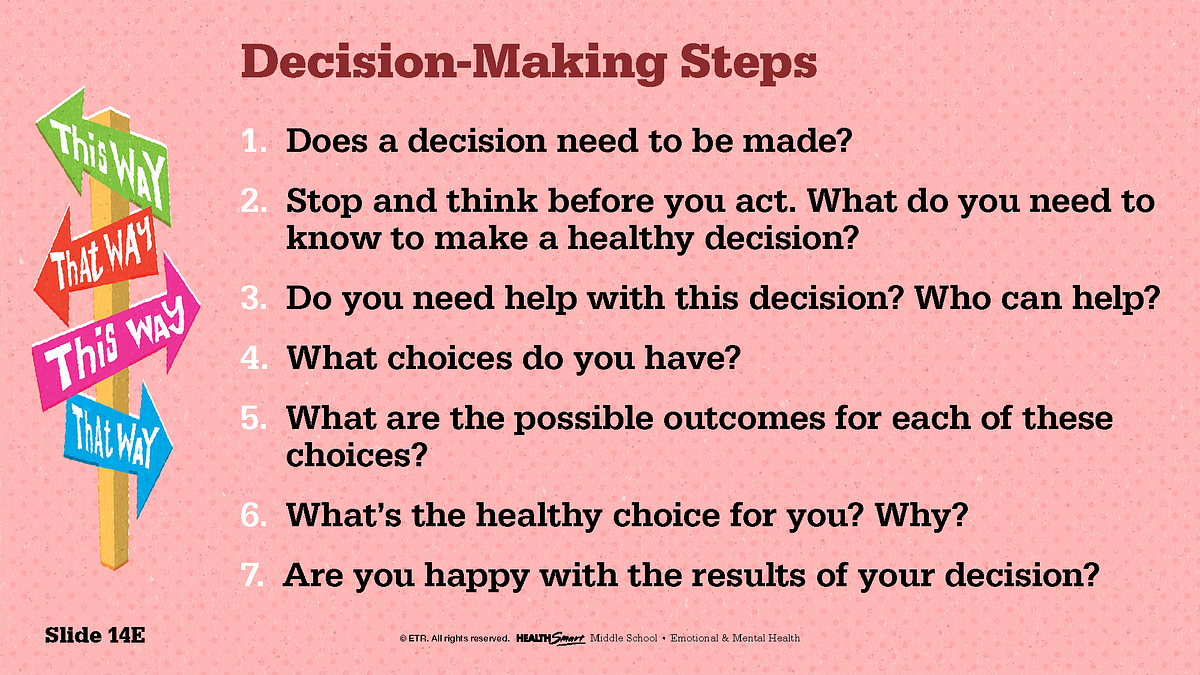In a world brimming with options, the ability to take choices efficiently is more crucial than ever. From everyday situations like deciding what to eat for dinner to high-stakes situations like career transitions or monetary investments, our choice-making skills determine the path of our existences. Yet, many discover themselves grappling with doubt, questioning their decisions or, worse, experiencing indecision by overthinking. The positive aspect is that mastering the skill of smart decision-making is a skill anyone can cultivate.
In this piece, we will examine proven techniques to improve your choice-making abilities, investigate the mental processes behind excellent decisions, and uncover the importance of intuition and critical thinking. Whether you're facing stress in a professional environment or need to maneuver through personal dilemmas, knowing how to create informed and confident decisions can empower you to take control of your life. Join us as we unpack the strategies that can assist you create better decisions and avoid the traps that lead to regret.
Strategies for Effective Choices
One powerful technique for improved decision-making is to create a transparent framework that helps evaluate options in an organized manner. Start by defining the challenge you need to solve, then collect pertinent information about available choices. Use methods like advantage and disadvantage lists or decision matrices to weigh the pros and drawbacks of each option. This systematic approach not only illuminates your thoughts but also helps you be neutral, reducing emotional bias that can cloud judgment.
Another important aspect is to apply the discipline of mindfulness. Taking a brief pause to stop can significantly boost the caliber of your decisions. Mindfulness encourages you to be present in the moment, allowing you to empty your mind of interruptions and focus on the decision at hand. By training yourself to slow down and assess your feelings and thoughts, you can make more intentional and considered choices that correspond to your values and goals.
Finally, involving others in the decision-making process can enhance the results. Collaborating with peers or seeking input from reliable individuals encourages diverse perspectives and insights. This collective effort can lead to a more comprehensive understanding of the options at hand. However, make https://anotepad.com/notes/8mmndcig to coordinate this process effectively to avoid getting caught up in conversations, which can lead to overthinking. Striking a balance between team contributions and decisive action is key to making sound decisions.
Comprehending Choice-Making Cognitive Psychology
Decision-making is deeply rooted in psychology, affecting how we analyze information and deal with choices. Our tastes, experiences, and cognitive biases influence our decisions, often in ways we may not even recognize. For instance, a tendency to seek information that confirms our beliefs leads us to favor information that matches with our existing beliefs, possibly clouding our decision-making. Identifying these psychological influences is crucial for enhancing effective decision-making skills.
Emotional intelligence plays a crucial role in our decision-making methodologies. Our emotions can direct us toward specific choices while moving us away from others. Being aware of our emotional responses allows us to balance feelings with logical reasoning. This balance can boost our capacity to make well-informed decisions, especially in high-pressure situations where clarity and composure are vital.

Grasping the psychology behind decision-making also entails recognizing the impact of indecision. Many individuals struggle when faced with vague outcomes, leading to inability to decide. By learning to embrace uncertainty and adopting strategic approaches, we can evolve more adept at navigating complex choices. This method not only builds confidence but also nurtures a more dynamic mindset in making choices encounters.
Overcoming Ambivalence and Boosting Self-Confidence
Indecision can frequently stem from concern of having the wrong selection, causing to inactivity by analysis. To overcome this cognitive block, it is important to change your focus from likely mistakes to possibilities for improvement. Start by accepting that no decision is set in stone; every choice offers important lessons, regardless of the result. Embrace the idea that making choices is a ability that can be improved. By informing yourself that it's common to feel unsure, you can decrease pressure and boost your willingness to act.
Developing confidence in your determining abilities requires practice and self-assessment. Establish a routine for evaluating past decisions, both positive and unfavorable. Examining these instances helps you recognize habits in your thinking and discern what worked or failed. Furthermore, creating small, achievable goals can enable you to make choices more easily. Each good choice, no matter how insignificant, adds to a developing sense of self-belief and decisiveness in your decision-making skills.
Finally, enhancing confidence means actively seeking assistance and input from trusted peers or guides. Engaging in honest discussions about your issues can provide new viewpoints and choices you may not have earlier recognized. Remember that seeking counsel is a positive trait, not a drawback. Including these practices into your routine fosters a encouraging environment that encourages swift action while minimizing the fear of loss. Ultimately, enhancing your choice-making ability comes from a mix of self-reflection, training, and joint feedback.
